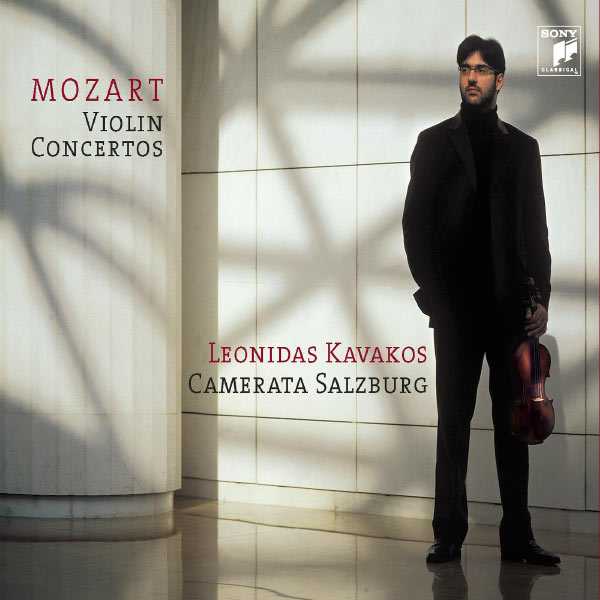
Composer: Wolfgang Amadeus Mozart
Performer: Leonidas Kavakos
Number of Discs: 2
Format: FLAC (tracks)
Label: Sony
Catalogue: 82876842412
Release: 2006
Size: 623 MB
Recovery: +3%
Scan: cover
CD 01
Violin Concerto No. 1 in B-Flat Major, K. 207
01. I. Allegro moderato
02. II. Adagio
03. III. Presto
Violin Concerto No. 2 in D Major, K. 211
04. I. Allegro moderato
05. II. Andante
06. III. Rondeau: Allegro
Violin Concerto No. 5 in A Major, K. 219
07. I. Allegro aperto – Adagio – Allegro aperto
08. II. Adagio
09. III. Rondeau: Tempo di Menuetto – Allegro – Tempo di Menuetto
CD 02
Violin Concerto No. 3 in G Major, K. 216
01. I. Allegro
02. II. Adagio
03. III. Rondeau: Allegro
Violin Concerto No. 4 in D Major, K. 218
04. I. Allegro
05. II. Andante cantabile
06. III. Rondeau: Andante grazioso – Allegro ma non troppo
Symphony No. 39 in E-Flat Major, K. 543
07. I. Adagio – Allegro
08. II. Andante con moto
09. III. Menuetto. Allegretto
10. IV. Finale. Allegro
…Kavakos reveals himself a lucid, urbane Mozartian, lithe and sweet of tone and minutely attentive to the composer’s articulation markings. In the main theme of No 5’s Adagio, for instance, he slightly separates each group of paired quavers as Mozart indicates, where most players favour a more-or-less seamless legato. This is a particularly lovely performance, with naturally expressive touches of rubato and a sensitive awareness of the darkened, shifting harmonies at the centre of the movement. A deciding factor for some will be the bonus of the late E flat Symphony: a strongly characterised, finely played performance (with some notably dulcet clarinet playing)…
This ambitious double-disc set is entirely shaped musically by the hot young violinist Leonidas Kavakos, who plays the violin in Mozart’s five concertos while conducting the Camerata Salzburg and also conducts the Symphony No. 39 in E flat major, K. 543. It’s an impressive performance that can’t be accused of not adding anything to the dialogue surrounding these works. Kavakos seems determined to transmit a sense of standing forward on the stage. (Incidentally, though this is billed as a live recording, it’s not clear what that means in this case; the booklet lacks any indication of recording location or time, and the recording is completely free of audience presence.) He adds a good deal of ornamentation to Mozart’s lines, and he writes his own cadenzas — big ones. In these he is not alone, but his other stylistic trait is more unusual: often he takes a big pause before his entrances, especially in the opening movements. It’s like a pregnant pause in a string quartet, but it comes as quite a surprise in the comparatively lightweight atmosphere of the violin concertos. Kavakos does hold the listener’s attention throughout — there’s always something new and different going on in the music. He gives concertos perhaps more weight than they can support, although he creates large, complex interpretations that turn out to be impressively coherent. Perhaps Kavakos’ strongest outing here is in the Symphony No. 39, where he employs insights drawn from the historical performance movement and finds a receptive group of musicians in the Camerata Salzburg, which was once conducted by Roger Norrington. The inclusion of the symphony itself is the first favorable point; Mozart, or anyone programming his music in his own time, would have crossed genres in this way, and the program as a whole seizes the listener’s interest with the similarities and differences in Kavakos’ approaches to concertos and symphonies. You’ll hear plenty of brass and drums (perhaps some kind of older tympani) in the louder sections, with both overall transparency and wide differentiation in the music throughout. The contrast between the minuet and its trio is sharp but convincing, and the briskly taken slow movement has a very precise grace. Kavakos comes off as a musician brimming over with original ideas and struggling at times to hold them together — and succeeding for the most part.